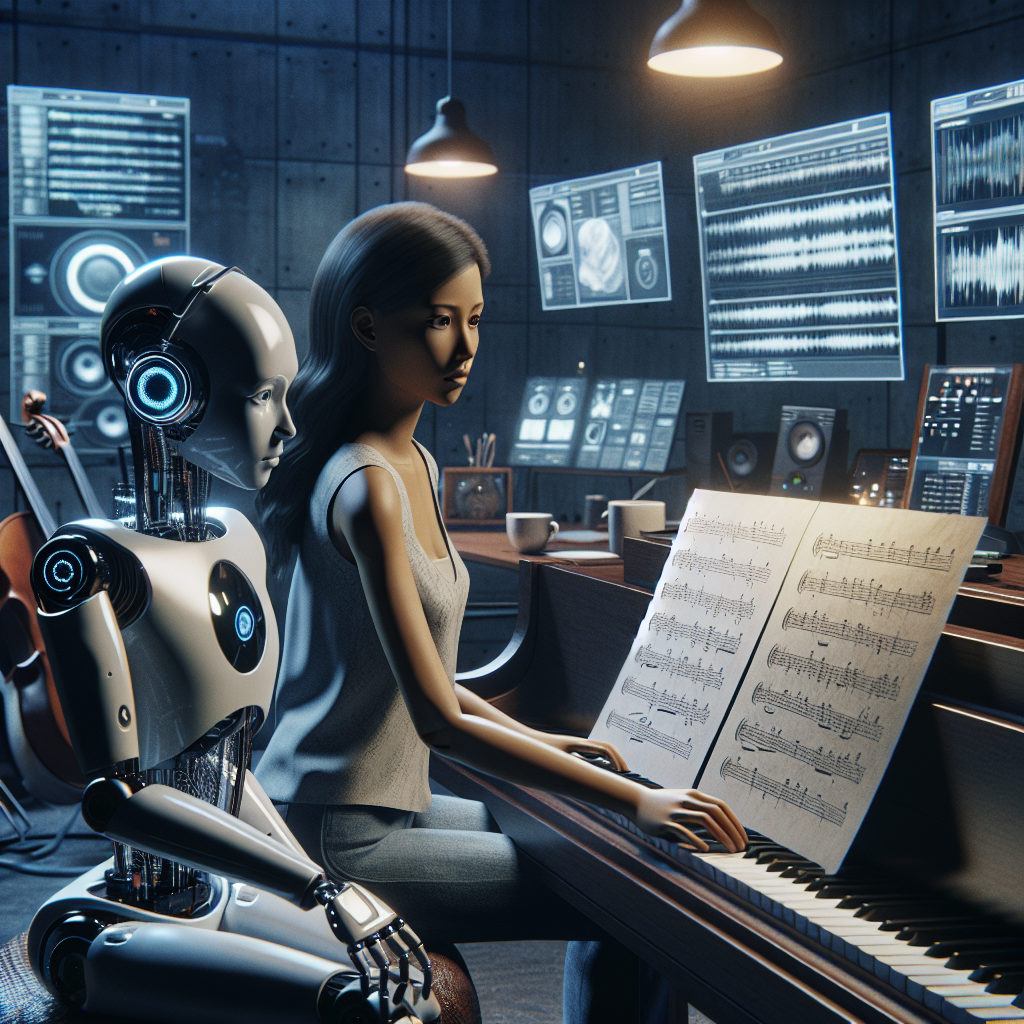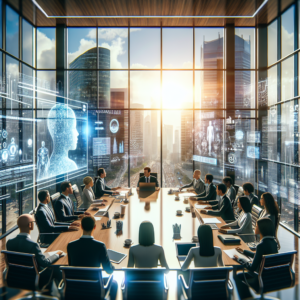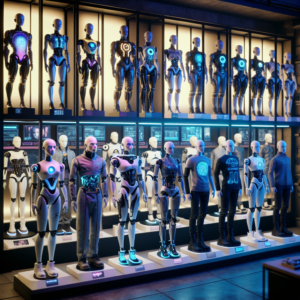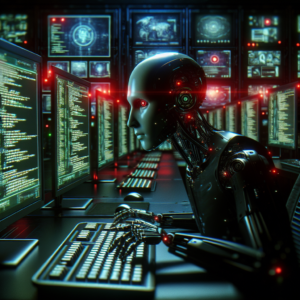AI is Coming for Music, Too
In recent years, artificial intelligence (AI) has made significant strides in various sectors, and the music industry is no exception. The rise of AI-driven music tools and platforms has prompted a discussion about the implications and potential of this technology in the creative process. As AI systems become increasingly sophisticated, they are not only transforming how music is produced but also how it is consumed.
The Transformation of Music Creation
AI has the potential to revolutionize the music creation process in several ways. Here’s how:
1. Composition: AI algorithms can analyze vast amounts of music data and generate original compositions. These systems utilize machine learning to understand patterns in music theory, melody, and rhythm. By doing so, they can create songs across various genres, often indistinguishable from those written by human composers.
2. Collaboration: Musicians are beginning to collaborate with AI systems, using them as tools to enhance their creativity. For instance, artists can input their ideas into AI platforms and receive suggestions for melodies, harmonies, or even lyrics. This collaborative approach not only speeds up the creative process but also offers new avenues for artistic expression.
3. Personalization: AI also enables the creation of highly personalized music experiences. Streaming services like Spotify and Apple Music use AI to analyze listener preferences, curating playlists and suggesting tracks that match individual tastes. This personalization enhances user engagement and satisfaction, creating a more tailored listening experience.
AI in Music Production
The production side of music has also seen profound changes due to AI technologies. Here are some significant developments:
1. Sound Design: AI-powered tools can assist sound designers in crafting unique sounds. By leveraging neural networks, producers can create entirely new audio samples or modify existing sounds in innovative ways. This allows for a broader range of sonic possibilities, which can invigorate music production.
2. Mixing and Mastering: AI algorithms can automate and optimize the mixing and mastering process, which are crucial steps in music production. These tools analyze tracks to adjust levels, EQ settings, and dynamics, ensuring that the final product sounds polished and professional. As a result, independent artists can achieve high-quality production without the need for extensive resources.
3. Efficiency: By streamlining various aspects of production, AI can significantly reduce the time required to create music. Artists can focus on the creative elements while leaving repetitive tasks to AI tools, which can ultimately lead to more music being produced.
The Impact on Musicians and Industry Professionals
The emergence of AI in music raises important questions about its impact on musicians and industry professionals. Here are some critical considerations:
1. Job Displacement: As AI systems become more capable, there is a concern that they may replace human musicians, producers, and engineers. While AI can automate certain tasks, many believe that the human touch in music will always be irreplaceable. The emotional connection and unique perspective that artists bring to their work are hard to replicate, even for the most advanced AI.
2. New Opportunities: On the other hand, AI also opens up new opportunities for musicians. As technology evolves, artists can harness AI to explore uncharted creative territories. This could lead to innovative collaborations and entirely new genres of music. Moreover, musicians who embrace AI tools may find they are better equipped to navigate the rapidly changing industry landscape.
3. Ethical Considerations: The increasing role of AI in music raises ethical questions regarding copyright and ownership. If an AI generates a piece of music, who owns the rights? As the lines between human and machine-created content blur, the industry must grapple with these challenges to find a fair resolution.
Case Studies of AI in Music
Several groundbreaking projects demonstrate the potential of AI in music. Here are a few noteworthy examples:
1. OpenAI’s MuseNet: This AI system can generate high-quality music in various styles, including classical, jazz, and pop. By training on a large dataset of musical compositions, MuseNet can create intricate pieces that reflect the nuances of different genres.
2. AIVA (Artificial Intelligence Virtual Artist): AIVA is designed specifically for composers and musicians. It can create original soundtracks for films, video games, and commercials, allowing creators to access unique music tailored to their projects.
3. Amper Music: This AI-driven platform allows users to create and customize music using a simple interface. Users can select the desired genre, mood, and instrumentation, and Amper generates a unique track in minutes, making it accessible for content creators and businesses.
The Future of AI in Music
As AI continues to evolve, its integration into the music industry is likely to deepen. Here are some potential future developments:
1. Enhanced Interaction: Future AI systems may allow for real-time collaboration between human musicians and AI, enabling a more fluid exchange of ideas. Imagine an AI that can adapt to a musician’s style in real time, creating a truly interactive performance experience.
2. Augmented Creativity: AI could serve as a creative partner, providing musicians with suggestions that push their boundaries and inspire new directions in their work. By analyzing trends and historical data, AI systems could present ideas that artists might not have considered.
3. Democratization of Music Creation: As AI tools become more accessible, more people might find themselves creating music, regardless of their technical skill level. This democratization could lead to a flourishing of diverse musical expressions and a broader representation of voices in the industry.
Conclusion
The advent of AI in the music industry presents both challenges and opportunities. While concerns about job displacement and ethical dilemmas persist, the technology also opens new avenues for creativity and innovation. As musicians, producers, and industry professionals navigate this evolving landscape, the potential for collaboration between human artistry and artificial intelligence could redefine the future of music. Embracing these changes may lead to a richer, more diverse musical world, one where creativity knows no bounds.
In summary, while AI is undeniably coming for music, it does not herald the end of human creativity. Instead, it offers a new frontier for artistic expression, urging musicians to adapt and innovate in ways that were previously unimaginable. The future of music lies in the harmonious coexistence of human ingenuity and artificial intelligence.



